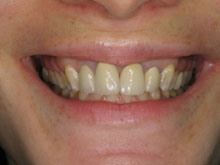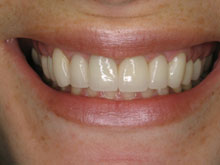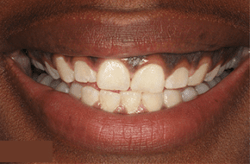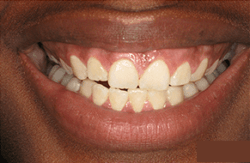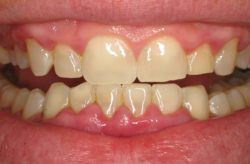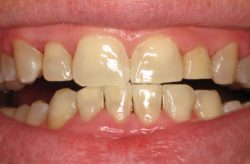Important Dental Tips to Prevent Gum Disease
Control dental surgery pain with nonsteroidal anti-inflammatory drugs (NSAIDs). These drugs – including aspirin and ibuprofen – are often more effective than codeine or synthetic narcotics. Best: Use NSAIDs before your appointment, so they will be effective at suppressing the body’s pain response when the dentist begins working. Then take at regular intervals for the rest of the day after surgery. Caution: NSAIDs cannot be used by people who are allergic to aspirin… have a history of bleeding ulcers or clotting problems… have renal problems… or are pregnant. They are best taken with food in your stomach.
Cosmetic dentistry can correct a “gummy smile.” A Periodontist cuts away excess tissue, sculpting a new gum line. The procedure is performed under local anesthesia and any minor discomfort usually lasts a couple of days.
There is no best or worst type of dental floss. What to use depends mainly on preference – to some extent – and on the space between your teeth.
- If you have very little space between your teeth – use a fine, waxed thread.
- Wax makes floss less likely to shred. However, it can leave a slight film on the teeth that may retain plaque.
- Dental tape – which is thicker than thread – works well if there is enough space between the teeth.
- Teflon-coated Glide is resilient and designed to slide easily between the teeth, so it’s particularly good if you have tightly spaced teeth. It comes in both tape and thread forms.
- Flavors don’t matter – unless they motivate you to floss. Flossing once a day is more important than which type of floss you use.
Hormones in birth-control pills can lead to chronic gum inflammation in some women. Careful oral hygiene and frequent dental cleanings may be all that is necessary to take care of the problem.
Rinse your mouth with plain water a few times each day when you don’t have a chance to use a toothbrush or floss. This helps dislodge food particles trapped next to teeth that cause problems when left there too long. The importance? Exposed roots are softer than dental enamel and can form decay more easily.
Hard candies, taffy, and cough drops are worse for your teeth than sweets that you chew and swallow quickly – like chocolate. The reason? Sugar temporarily turns your saliva more acidic. The longer it remains that way (20-30 minutes with each hard candy), the longer the bacteria grow and thrive, giving them the opportunity to cause more damage to your teeth and gums.
Parents who raise babies in parts of the country where the drinking water is fluoridated, may think their child is getting enough fluoride to help make their enamel stronger (SIGMA) but are they really? How much drinking water do newborns and babies actually drink? Hint. Discuss this important topic with your dentist or a pedodontist. (A pedodontist is an expert in children’s dentistry.) Have them speak with your pediatrician so that a program can be established to insure that your child gets enough fluoride into their developing teeth. Remember! The greatest benefit from fluoride occurs when the tooth buds are developing in their jaw bones; the benefit after the teeth erupt into their mouths is far less.
Patients with dentures should still have annual dental checkups to screen for oral cancers.
Patients still need to practice good oral hygiene around dental implants. Plaque and tartar attach to implants just like they do to teeth. Have professional “cleanings” around implants with the same frequency as tooth cleanings.
Cough drops, antacids, and chewable vitamin C tablets typically contain cavity-producing sugar. Rinse with water after you use them; this neutralizes the acidity, which promotes tooth decay.
Calcium channel blockers such as Procardia (nifedipine) and Cardizem (diltzem) used to treat blood pressure can cause the gums to swell. When this occurs, it is difficult to practice good plaque control. See your dentist for regular cleanings and practice good oral hygiene measures. If the gum swellings enlarge to a point where they interfere with good dental health, consult your dentist.
Chemotherapy drugs, as well as many other medicines, may decrease your salivary flow. Less saliva contributes to a dry mouth. Since the saliva acts as a buffer to neutralize acid-producing bacteria, dental decay can increase in patients whose salivary flow is diminished. When you notice that your mouth is dry, drink water as frequently as you can, and practice better oral hygiene. Do not try to make your mouth feel moist with candies, Lifesavers, or cough drops. These promote tooth decay. If you must use something to alter a dry mouth, use sugarless candies. (These can be found in the “Diabetic” section of any market or drugstore.)

